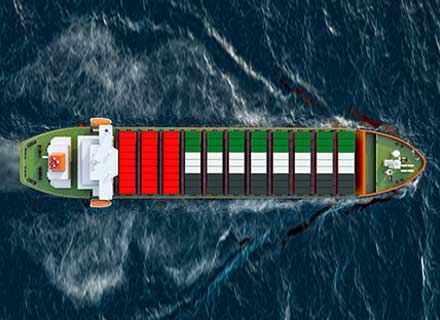The United Arab Emirates and South Korea, on October 14, announced the conclusion of talks on a bilateral trade agreement known as a Comprehensive Economic Partnership Agreement (CEPA).
Trade and investment links between the Gulf state and South Korea have been steadily improving, as the non-oil commerce between the two nations reached USD 3 billion in the first half of 2023, equivalent to the same period in 2022 but up by 21% over 2021.
Apart from the CEPA, the Korea Electric Power Corporation and a consortium of Korean enterprises will also build all four units of the USD 20 billion nuclear Barakah Power Plant in Abu Dhabi, which went into service in April 2023 to assist in satisfying the Gulf nation’s electricity demands.
In fact, South Korea was one of the first countries with which the Gulf state launched CEPA talks in 2021.
Three months later, UAE revived dormant Free Trade Agreement (FTA) talks with the six-member Gulf Cooperation Council bloc.
“We resumed talks with Korea earlier this year as we were both keen to conclude a deal and advance our respective economic agendas,” Thani Al Zeyoudi, UAE minister of foreign trade, told Reuters, stating that the GCC FTA talks were ongoing.
“There were about 178 South Korean firms doing business in the UAE as of 2022, and the Korea-UAE CEPA would enhance the stability of South Korean firms entering into the UAE, while it would also support South Korean firms’ activities in the Middle East and North Africa,” South Korea’s trade ministry said in a statement.
The UAE has so far signed several CEPAs including from Israel, Turkey, India and Indonesia, as part of a strategy to diversify its economy away from oil.
The country is now hoping to secure free trade deals with six more countries by the 2023 end.
Al-Zeyoudi also revealed that the UAE was close to signing comprehensive economic partnership agreements with Thailand and Chile.
The Gulf country is also looking to reach deals with Costa Rica, Columbia and Ukraine, apart from engaging in talks with Pakistan, Serbia and Malaysia to broaden its export market.
Al-Zeyoudi recently attended the free trade agreement signing between the UAE and Georgia, a move which potentially will double the Gulf nation’s non-oil trade to USD 1.5 billion from USD 481 million by 2028.
The new deal also builds on growing UAE-Georgia economic ties that resulted in non-oil trade beyond USD 225 million in the first half of 2023, with 28% growth in the first half of 2022.
Total non-oil bilateral trade reached USD 481 million in 2022, up 115% in 2021, with the UAE now accounting for over 63% of Georgia’s trade with Arab countries.
The trade deal, which aims to eliminate/reduce tariffs on 95% of product lines, is expected to have a significant impact on non-oil trade between the two countries.

